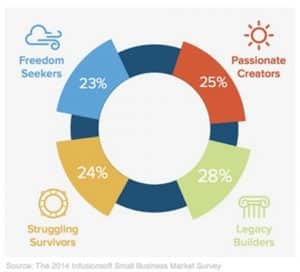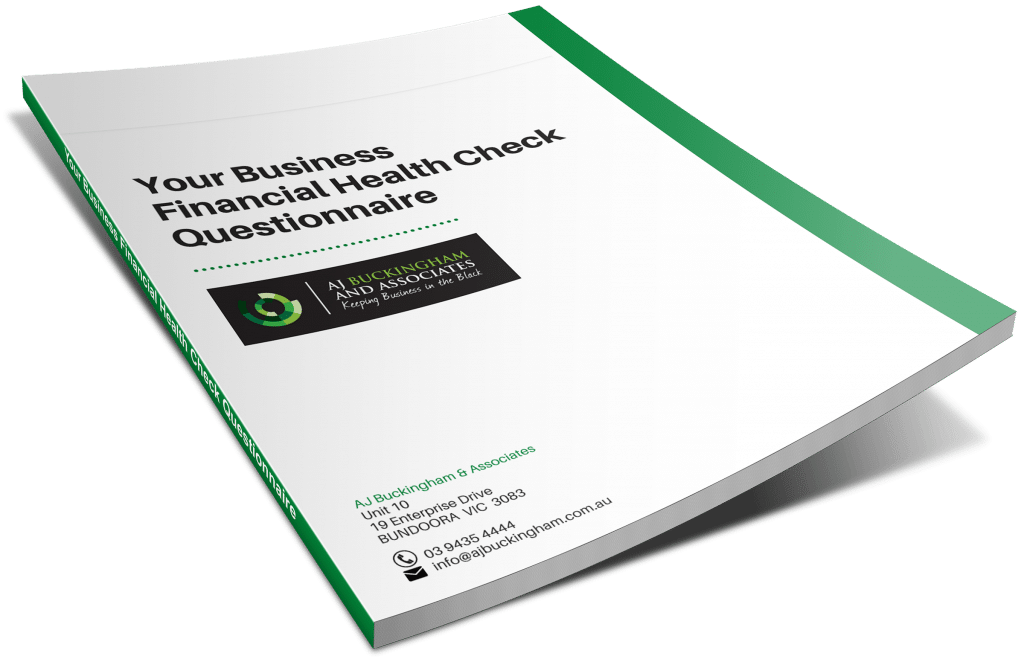According to a recent study from Infusionsoft who produce sales and marketing software for small business owners, there are four distinct types of business owner. Their attitude, mindset and behaviour are all different and the research examined their feelings about their business including ownership, goals, challenges and resources. The business owners were categorised into four distinct groups that have been labelled;
- Freedom Seekers
- Passionate Creators
- Struggling Survivors and
- Legacy Builders.

Statistically speaking, from the sample of more than 850 US-based business owners the breakdown was almost even. Below are the characteristics of each category. Which one describes you best?
1. Freedom Seekers
Freedom Seekers are people who primarily started their businesses to control their own fates, specifically regarding decisions, work environment, schedule and revenue. These respondents are much more likely than other segments to say “Reducing the amount of time I have to work” as a key goal. Correspondingly, they cite their biggest challenge as “Time to get everything done”.
- 65% consider themselves entrepreneurs.
- 56% say they would “absolutely not” work for somebody else in the future.
- They are likely to use bookkeeping or accounting software (57%), email marketing automation (61%) and e-commerce order and payment processing (47%), CRM (46%), email autoresponder (44%) and contact management software (38%).
- Keywords – Autonomy, Flexibility, Control and Lifestyle.

2. Passionate Creators
Passionate Creators started their businesses because they care deeply about what they do. When asked about their goals, “Doing the work I love” was an overwhelmingly favoured answer for this group.
- 48% say they always knew they would run their own business.
- 73% consider themselves “definitely” entrepreneurs.
- 53% say that helping other business owners be successful is an extremely important goal.
- This segment is the most likely to have five or more employees (31%) and work in an office (43%). They are also most likely to say they will generate “much higher” revenue this year (30%).
- Passionate Creators are the most likely to use a wide range of business tools, from accounting software to CRM and automated marketing programs.
- Keywords – Optimism, Creativity, Altruism and Service.
3. Legacy Builders
Legacy Builders are most likely to have started their business with a family member (24%). They see small businesses as a practical economic choice.
- The least likely of the four groups to have earned a college or post-graduate degree.
- 52% consider themselves entrepreneurs.
- They are the most likely of the four profiles to run only one business (80%) and least likely to have considered closing (26%) or selling (24%) their business.
- Legacy Builders are the least likely group to have a website (45%). Even those that do have a site are less likely to use CRM, payment processing and other tools to run their business, or to use email, content marketing, SEO, PPC, or marketing automation to generate leads.
- Keywords – Practical, Ethical, Innovative and Legacy.
4. Struggling Survivors
Struggling Survivors have significant concerns about the value of owning a small business. Sixty per cent agree strongly that “You have to be a little crazy to start a business,” and forty per cent agree that “Corporate jobs are more secure than starting your own business” – significantly more than other segments.
- 50% consider themselves entrepreneurs.
- 51% are the only employees in their business.
- Struggling Survivors are the most likely of the four groups to have considered closing their business (53%).
- Only 16% say the financial security of their family is much better than it would be if they had a traditional job, and 38% say it’s the same or worse.
- Keywords – Apprehensive, Challenged, Unappreciated and Concerned.
The results prove that people go into business for a range of different reasons with incredibly diverse attitudes. As a business owner where do you fit? The takeaway from this study might be it’s time to grab some ideas from other types of business owners to improve your business and your financial outcomes.

